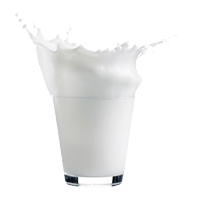Cheese Glycemic Index (GI) - Is It High or Low?
The glycemic index of most cheese varieties is very difficult to calculate as they are low in carbohydrates.
According to The American Journal of Clinical Nutrition, the glycemic index of different cheese varieties falls in the range of 0 to 10 (1).
The glycemic indices of cheddar, 93% fat-free cheddar, and cream cheese are equal to 0. At the same time, low-fat processed cheese and cottage cheese, both reduced-fat and low-fat, have glycemic indices of 10.
Cottage cheese contains more carbohydrates and, subsequently, more sugar when compared to cheddar. To read more about the glycemic index of cottage cheese and its effect on health, you can go to our “Cottage Cheese” page.
Adding cheese to a high glycemic index food has been shown to have a beneficial effect. In particular, adding cheddar cheese to a potato meal has significantly decreased the potato's glycemic index (2).
By contrast, one study found that adding cottage cheese to a white bread meal made no difference to the glycemic response of the bread (3).
In summary, cheese has a very low glycemic index with a neutral or beneficial effect on the glycemic response of a meal. People with diabetes can safely add cheese to their diets in moderation.
You can see the GI values for different foods on our glycemic index chart page.



